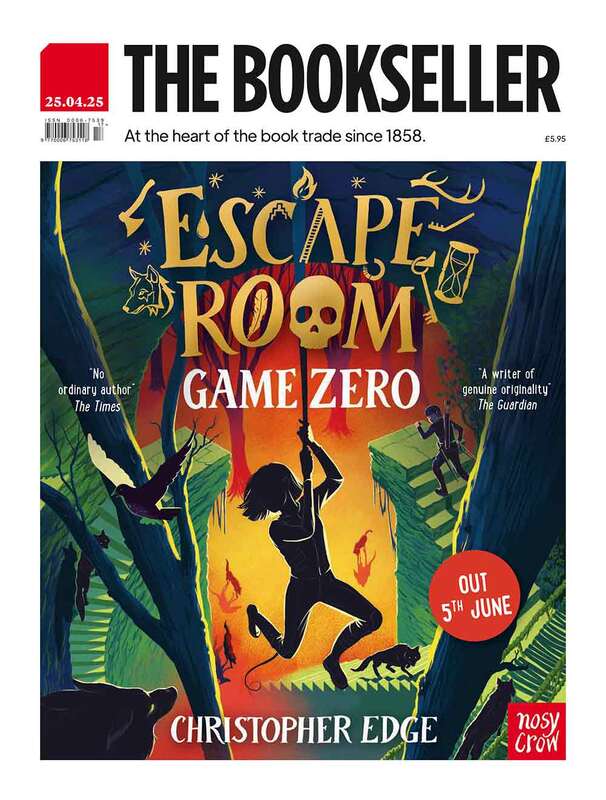You are viewing your 1 free article this month. Login to read more articles.
States of mind
A recent commission concluded that there is no institutional racism in the UK. This astonishing, gaslighting declaration underscores a realisation I had a few years ago, while descending a dirt path on Triund Hill in the Himalayas. After decades of trying to understand why racism persists, it occurred to me that ‘whiteness’ is a state of mind – the state of mind that feeds on power, thrives in inequality, builds walls and borders, while it itself is borderless, replicating everywhere, no matter the commissioner, no matter the culture.
I had travelled to India to find a connection to a different part of my ancestry than I had previously explored, and to research my memoir, Shame on Me, which unpacks my Chinese, African, Indian, Scottish, Arawak, Portuguese and French heritage. But biology is not culture, and once again I struggled to belong.
My writing has always centred on belonging and its opposite. In my first novel a young, adopted woman searches for her identity in Montreal; in my third novel a 60 year old Guyanese-Chinese woman is adrift in London; in my fourth a young black man is murdered in Spain. Unbelonging, too, is borderless, possibly stateless, and potentially free. So there on the hill in Triund, the power of what I’m calling whiteness collided with the inertia of what I’m calling unbelonging. I set my upcoming novel The Snow Line there to explore this.
In the novel an elderly white man arrives in India with his wife’s ashes in his suitcase. He is a good man, at heart, but his sense of entitlement has made him blind. The whiteness I’m defining doesn’t see. He meets three displaced characters with Indian ancestry, outsiders who allowed me to explore ways people might resist the blindness that my main character embodies.
In order to write about whiteness as a state of mind I had to understand it within myself. I had to understand how my upbringing contained both privilege and oppression. I examined where whiteness resides in culture and the personal, the structural and the political. I depicted it in the first person through my main character. Writing about unbelonging was easier, and I wove my imagination and my personal experience together with interviews, stories that were shared with me, archival research, character studies, the politics of caste and the socio-political writings of B.R. Ambedkar, among others. I built these outsiders to resist the whiteness confronting them.
At all points I tried to keep, as Dionne Brand says, “history in the room.” Doing this meant thinking personally and politically at every turn, interrogating my personal story alongside these characters. Asking where power lies. Asking whose stories were left out. Whose stories are absent from archives and books? If our published stories are categorised along national boundaries, if dominant voices have clear-cut notions of ethnicity or belonging, how do we speak of unbelonging and statelessness? I wanted to write into the gaps, for those who fall between the cracks of ethnic and nation-state identities. Biology is neither destiny nor statehood. And statehood is often exclusion, sometimes murder.
How do we belong to a nation state, a gender, a family, an occupation, an ethnicity, a religion, a football team or a club of any kind? All of these have ideologies that define their members. Unbelonging seems far more potent by existing outside of them.
States of mind do cross borders. The one I adhere to is shared around the world with those in struggle, still resisting the opposing state of mind and the armed reality that oppresses them. Still questioning. I don’t know much. Through language I imagine the possibility of true liberation. Art is a means to create new realities that might show us new ways to live and inspire us to action. I want a new way to live. The state of mind I seek in solidarity has at its core real freedom from the supremacy of whiteness as I’ve defined it.
My British Indian yoga teacher, who helped me with my novel, once told our yoga class that if you do malasana (squat) every day you’ll live a very long life. I have neglected this pose on many days. What is it to live long? Everything feels urgent. I want change now. In imagining the unbelonging of three Indian characters and putting them in conflict with whiteness, I was striving to bridge the chasm between those two states of mind. Through writing I found a common goal for them: to move beyond the blindness of their individual experiences. To see something new. I found a journey they could share. I had to reckon with my own biases while still loving my disparate characters, because a character without the author’s love is a failure. In the reckoning I was humbled.
Tessa McWatt is the author of six novels, two books for young people, and one non-fiction book, her memoir Shame On Me. Her work has been nominated for the Governor General’s Award, the Toronto Book Awards and the OCM Bocas Prize. She is a winner of the Eccles British Library Award 2018 and is Professor of Creative Writing at UEA. Her latest novel, The Snow Line, is published in July.





